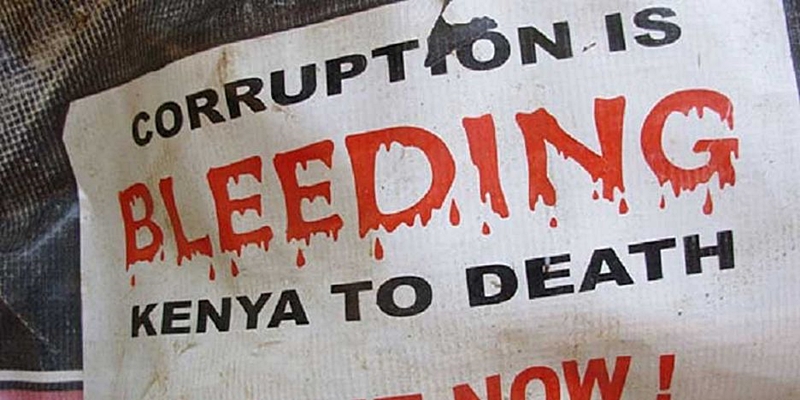BBI and Ethical Culture: Which Way for Kenya?

The destiny of any society is pegged on actions, thoughts, mores, habits, and the characters of every citizen.
The raging debate to hold a referendum based on the recommendations of the Building Bridges Initiative (BBI) has attracted different opinions from Kenyans. Many have questioned why it is a priority to change a constitution that is barely 10 years old.
A section of Kenyans agree that to conform to modern trends of governance and public service, changing the law is necessary. However, others contend that, in a society where citizens lack ethical values, even if we had a perfect constitution, it will be elusive to realize change.
Transforming society mostly lies in the mind and not necessarily in the laws of that society.
Prof. Charles Choti of Washington DC observes that “in the history of Kenya, it’s not a bad constitution which makes us kill each other during every election but political greed and the desire to retain power without popular will.”
A resident of Minneapolis, Mr. Shem Nyangito asserts that “If retired President Mwai Kibaki honourably conceded defeat after losing the Presidency to Raila Odinga in 2007, Kenyans would have not slaughtered each other in the violence which occurred after presidential results were announced.”
A nation that displays its problems on paper usually has leaders and citizens who lack character and integrity. Positive change is in the hearts and minds of people. In the book of Romans 12:2, the Bible says this about transformation: “And be not conformed to this world: but be ye transformed by the renewing of your mind, that ye may prove what is that good, and acceptable, and perfect, will of God.”
Antagonists of the BBI referendum argue that if we implemented chapters 4 and 6 of the current constitution which dwells on the Bill of Rights and leadership and integrity, we could realize a just and value-driven society.
We need to question ourselves why the TJRC Report is gathering dust when it has great provisions to address historical injustices. On electoral justice, the protagonists of the referendum rarely talk about Justice Kriegler and Justice Waki’s reports.
It is noteworthy that if Wafula Chebukati, his predecessor Issack Hassan and the late Samuel Kivuitu had been men of character to manage our election, post-election violence and loss of innocent lives would have been prevented.
Without ethical values, a constitution cannot prevent our legislators from falsifying or exaggerating mileage claims nor will it stop those in power from employing their cronies. Doing the right things takes willpower.
How much taxpayer’s money are we going to spend to change the law in order to address our myriad political and economic challenges when we are aware that the solution lies in character and integrity? If indeed changing a constitution is a panacea for Kenya’s success, how many times have legislators violated the constitution with impunity?
It’s foolhardy to change a law when you don’t respect an existing one! Changing the constitution cannot compel a leader to be morally upright, less corrupt, or less tribal. Tanzania has about 120 tribes but they all treat each other with brotherhood and this is not because of the country’s constitution but their value system.
When looked critically, the handshake between President Uhuru Kenyatta and Raila Odinga which birthed the BBI has not birthed fairness, justice, and inclusivity in the country. While it helped to thaw political animosity in the country after 2017 polls, most supporters of Kenyatta and Odinga are very skeptical about the real urgency for a referendum when we have a constitution perceived to be the most progressive in Africa.
“After the handshake, we expected to see inclusivity in the structure of government and compensation to the families who bore the brunt in 2017 post-election violence as well as a complete overhaul of the IEBC.” Says Robert Ndede, a Kenyan living in New York.
Today, Kenyans are wondering why Chebukati, now busy with the verification of BBI signatures is still in office when he blatantly mismanaged the 2017 election. Statistics by the National Cohesion and Integration Commission found out that 50% of Parastatal heads are from one community? Addressing such misnomers don’t need a constitutional change but having leaders who are fair and ethical in public service.
We should be honest amongst ourselves even as we deal with others in our everyday lives. If our politicians are able to be awarded fake degrees from our higher institutions of learning, where is academic integrity from the awarding institution and the awardee?
The “Kibaki tosha” declaration by Odinga in 2002 propelled Kibaki to the presidency. Tragically, the retired President failed to conduct national healing, entrench inclusivity, and fight graft. Instead, he underwent a complete metamorphosis. And, due to Kibaki’s dishonesty, he betrayed Odinga by reneging the MOU they signed before the election.
While it’s prudent to change laws to suit prevailing circumstances, its high time key proponents of BBI, President Kenya and Odinga told Kenyans how the constitution 2010 has failed in the fight against endemic corruption, inequality, nepotism, and other vices bedeviling the country.
By Joseph Lister Nyaringo
President of Kenya Patriotic Movement, a diaspora lobby based in the US
